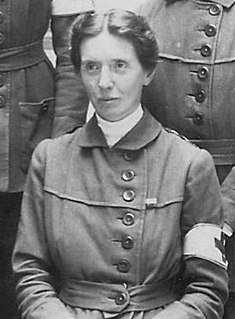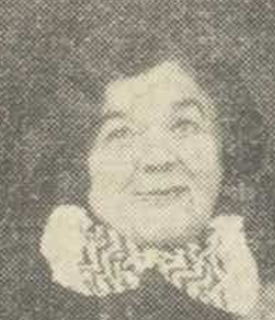Baron Northbourne, of Betteshanger in the County of Kent, is a title in the Peerage of the United Kingdom. It was created in 1884 for Sir Walter James, 2nd Baronet, who had earlier represented Hull in the House of Commons as a Conservative. His son, the second Baron, sat as a Liberal Member of Parliament for Gateshead. As of 2018 the titles are held by the latter's great-grandson, the fifth Baron, who succeeded his father in 1982. Lord Northbourne was one of the ninety elected hereditary peers that were allowed to remain in the House of Lords after the passing of the House of Lords Act 1999, and sat as a cross-bencher until his retirement in 2018.

James Francis Hurley, OBE was an Australian photographer and adventurer. He participated in a number of expeditions to Antarctica and served as an official photographer with Australian forces during both world wars.

John (Jack) Simpson Kirkpatrick, who served under the name John Simpson, was a stretcher bearer with the 1st Australian Division during the Gallipoli Campaign in World War I. After landing at Anzac Cove on 25 April 1915, Simpson began to use donkeys to provide first aid and carry wounded soldiers to the beach, for evacuation. Simpson and the donkeys continued this work for three and a half weeks, often under fire, until he was killed, during the Third attack on Anzac Cove. "Simpson and his Donkey" are a part of the "Anzac legend".

Edward Phillips Oppenheim was an English novelist, in his lifetime a major and successful writer of genre fiction including thrillers.

The Argus was a morning daily newspaper in Melbourne, Australia that was established in 1846 and closed in 1957. It was considered to be the general Australian newspaper of record for this period. Widely known as a conservative newspaper for most of its history, it adopted a left-leaning approach from 1949. The Argus's main competitor was David Syme's more liberal-minded newspaper, The Age.

The Australasian Post, commonly called the Aussie Post, was Australia's longest-running weekly picture magazine.

(James) Ian Stewart Macpherson, 1st Baron Strathcarron,, known as Sir Ian Macpherson, Baronet, between 1933 and 1936, was a British lawyer and Liberal politician.

Sir Ernest Scott was an Australian historian and professor of history at the University of Melbourne from 1913 to 1936.

Kevin Izod O'Doherty was an Irish Australian politician. He was a Member of the Queensland Legislative Assembly.

Flora Murray, was a Scottish medical pioneer, and a member of the Women's Social and Political Union suffragettes.

Randolph Isham Stow was an English-born Australian Supreme Court of South Australia judge.
Charles Julius Perry was an Australian rules footballer who played with Norwood in the SAFL, and a Methodist Chaplain who served in the First AIF.
Buley is a surname. Notable people with the surname include:

Marie Louise Hamilton Mack was an Australian poet, journalist and novelist.
Right Rev John Howard Bertram Masterman (1867–1933) was the first Anglican Bishop of Plymouth from 1923 to 1933.

Raymond Longford was a prolific Australian film director, writer, producer and actor during the silent era. Longford was a major director of the silent film era of the Australian cinema. He formed a production team with Lottie Lyell. His contributions to Australian cinema with his ongoing collaborations with Lyell, including The Sentimental Bloke (1919) and The Blue Mountains Mystery (1921), prompted the Australian Film Institute's Longford Lyell Award, inducted in 1968, and named in his and Lyell's honour.
Charles Whybrow Ligar was a British army officer, Surveyor General of New Zealand and Surveyor General of Victoria,.

Sir Hugh Robert Denison, originally Hugh Robert Dixson was a businessman, parliamentarian and philanthropist in South Australia and later New South Wales. He was a member of the South Australian House of Assembly from 1901 to 1905, representing West Adelaide (1901-1902) and Adelaide (1902-1905). Outside of politics, he was involved in his family's tobacco business, a forerunner of the British-Australasian Tobacco Company, was involved with a number of newspapers, and founded the Macquarie Broadcasting Services Pty Ltd radio network. He changed his surname by deed poll in 1907 to avoid confusion with his uncle Sir Hugh Dixson.

Moses Wilson Gray, known as Wilson Gray was an Irish-born barrister, member of the Victorian Legislative Assembly and district judge in New Zealand.
James Richard Collins was a senior Australian public servant, best known for his time as head of the Department of the Treasury
















